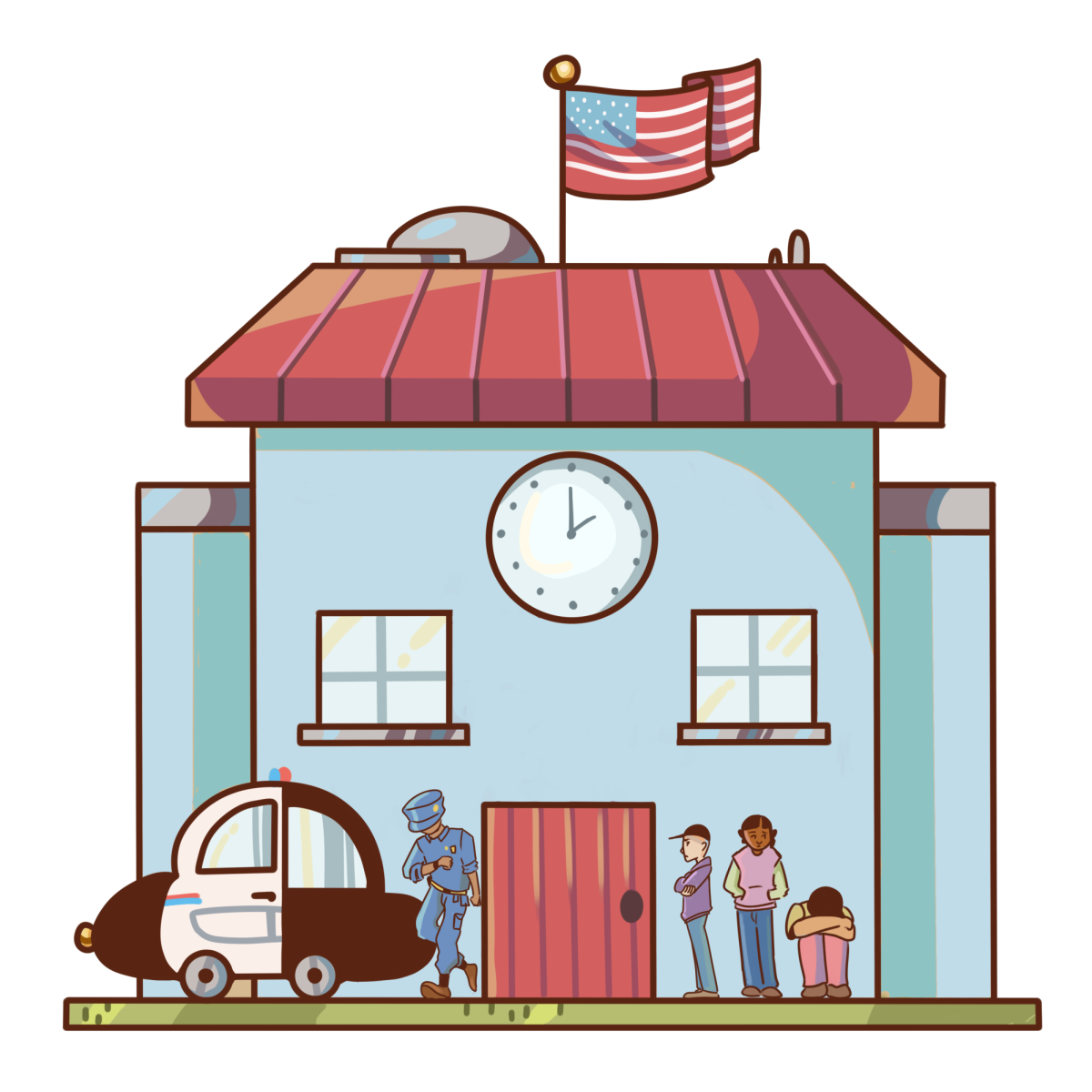Though Abby Kirchmeier ’20 anticipated a big crowd as she walked into Taper Gym, she was blown away by the turnout. Kirchmeier struggled to stand among the Fanatics on the jam-packed bleachers, with students on both sides of the court hollering chants and cheers for the schools’ basketball teams.
Despite having attended other school sports games before, Kirchmeier said that her first experience of what most students call the “biggest game of the year” against Loyola High School was filled with much more spirit and unity than she expected.
“So many fans from both schools came to support their own team,” Kirchmeier said. “And because it was such a close game, it was exciting for everyone to watch.”
From infamous rivalries such as “Star Wars” vs. “Star Trek” to Apple vs. Android, competition plays a big role in how people interact. Students have shown strong passion and support for the side or team they support, football player Brendan Kang ’20 said.
“I honestly love rivalry games because the pressure to perform well, the intensity and the atmosphere drastically changes for the better,” Kang said. “With the spike of attendance at these events, you have the utmost support from the entire school, and [the game] can become incredibly more memorable with a win. Even though these rivalries might bring out our ruthless and even aggressive sides, they give us another purpose for an entire year to train and compete to the best of our ability.”
While members of the baseball team always look forward to their games, they are more motivated to perform better when competing against a rival, shortstop Drew Bowser ’20 said.
“When we play against rival schools, it’s always really exciting for us,” Bowser said. “We’re pumped up for every game we play, but there’s something about competing against a rival like Notre Dame [High School] that gets us a little more hyped up.”
Head Fanatic Bella Carino ’19 said she notices a significant difference in students’ attendance at games depending on the competing school.
“The Loyola and Notre Dame basketball games, for example, were packed, but senior night unfortunately wasn’t,” Carino said. “These games are really memorable moments that I know have been a big part of why I love Harvard-Westlake, and these moments aren’t possible without the attendance and support of our community.”
Rivalry games are much more personal because students are usually familiar with players from the competing schools, Head Fanatic Lucas Lyons said.
“Even if you’re not into sports, it’s fun to see your friends and classmates succeed and to just be apart of a generally spirited and exciting community,” Lyons said.
These games tend to form stronger bonds between team members when competing and evoke team pride, Head of Upper School Laura Ross said.
“I think rivalries exist when you have schools with great pride in themselves and their accomplishments that run up against other schools who have similar pride,” Ross said. “I think that it is very human to want to demonstrate your pride in something you care about and have worked hard for, especially at the high school level, when schools are in the same city and often students know each other across schools.”
Psychological scientist Gavin Kilduff of New York University conducted a study using long-distance runners and revealed that people report higher performance when competing against their rivals. After studying 82 runners in 112 races, Kilduff confirmed that the presence of a rival increased a runner’s speed by about 4.92 seconds per kilometer.
These spirited events encourage a spike in student athletes’ competitiveness and urge to win, girls’ golf team captain Skylar Graham ’20 said.
“When it comes to playing against a rival team like Notre Dame or Marlborough School, there is an extra surge of determination because knowing that we are evenly matched against another team makes me want to prove that Harvard-Westlake is the best and that we have what it takes to get the win,” Graham said. “With that being said, rivalries can bring out the best and worst in teams, from the players to the coaches, and even the fans. But at the end of the game, it’s all in fun, and we look forward to meeting again.”
Head Fanatic Brayden Borquez ’19 said he hopes to see more students attend games that are not against rivals as well.
“We all want everyone to get as much support as we can,” Borquez said. “It’s awesome to be out there and experience the season as a whole without just those few games that are hyped.”
In addition to affecting sport teams, school rivalries also impact different clubs and competitive extracurricular activities. As long as it is done with mutual respect, they are helpful in enhancing school spirit by banding students together against a common rival, junior prefect and debater Jaya Nayar ’20 said.
“[Our debate team’s] biggest rival is probably Greenhill School,” Nayar said. “We have a friendly relationship and similar perspectives in debate, and we both have good debaters doing a lot of good work. We respect each other’s work ethic, but it gets really competitive between our two teams.”
Though a healthy competition with a rival school can positively impact school performance and student relationships, too much of that spirit can destroy the whole purpose of encouragement, Ross said.
“I think [rivalries] can be harmful when fans switch from rooting for their own team to denigrating the other team,” Ross said. “I’ve witnessed that sort of thing before at other schools where I’ve seen it get ugly. I’ve also seen teams in rivalries get into physical altercations with the other team, which is also not a good thing to happen. I think as long as people stay focused on their love and pride for their own program, then it’s definitely beneficial. It’s fun to cheer for the team you love.”











































